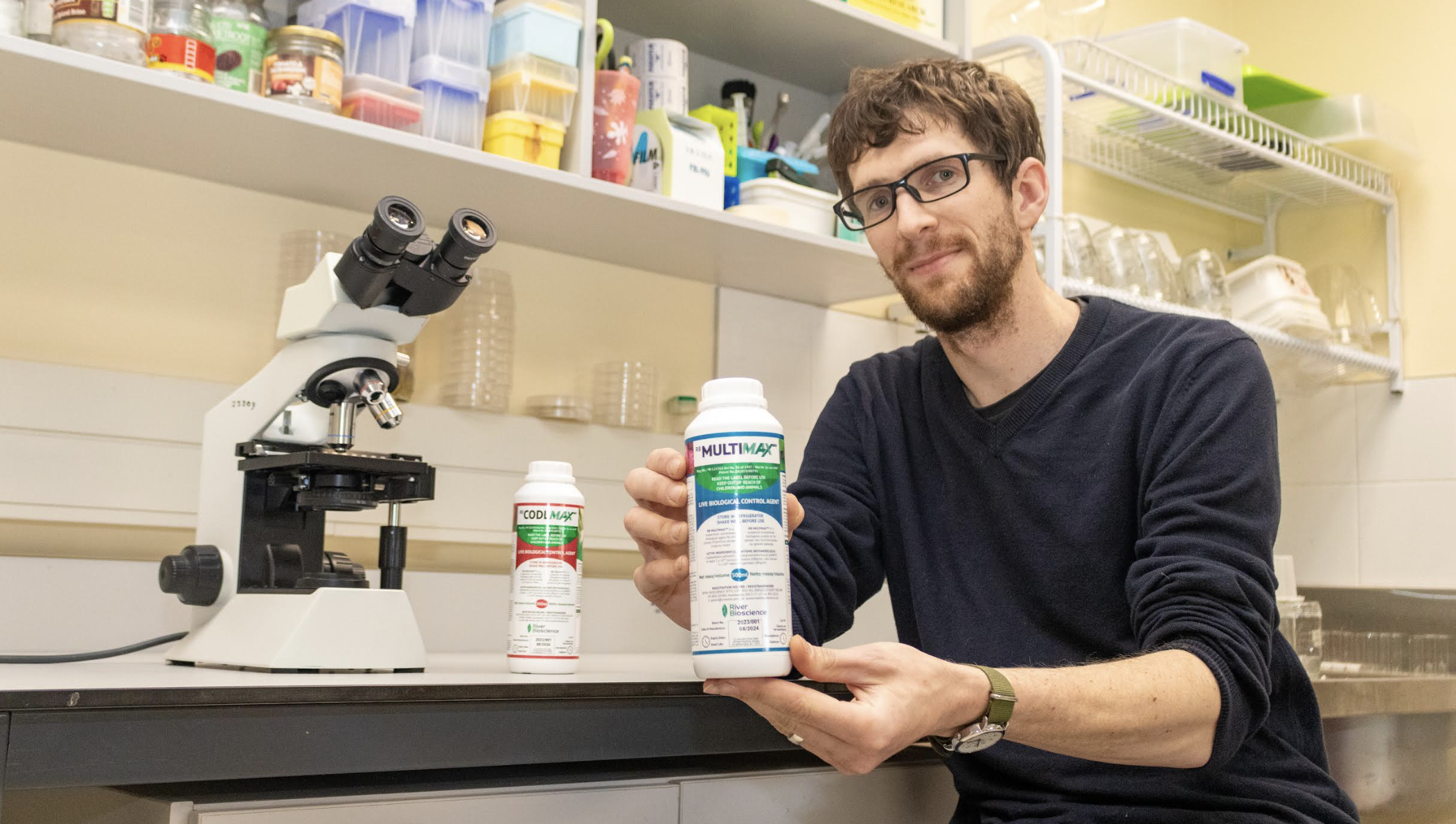By Staff Reporter
Lamenting the most alarming of all man’s assaults on the environment, author of history-making bestseller, Silent Spring, Rachel Carson refers to chemicals as biocides, the sinister and little recognised partners of radiation in changing the very nature of the world and of life itself. Despite Carson’s warnings, the world still applies more than 3.5 million tonnes of pesticides for pest and weed control.
The contamination of the environment by the injudicious overuse of chemicals, not only in the world that must support life but in living tissues of humans, Carson writes, is for the most part irrecoverable.
The European Union’s Farm-to-Fork targets now include a new regulatory framework that requires a drastic reduction in chemical pesticide and hazardous pesticides by 2030.
Yet, insect pests remain a major threat to food security and they need to be controlled. Complicating matters even more are growing concerns, such as in the United States, of resistance in some of the highly damaging pests such as the codling moth populations to existing treatments, including the entomopathogen CpGV.
Ground-breaking research by two Rhodes University PhD graduates, Tamryn Marsberg and Michael Jukes, has now led to the patent of viral-based products, MultiMax and CodlMax, as alternatives to the conventional use of chemical pesticides on citrus, apples, and litchi. The advantage of these products includes their lack of non-target effects such that the pest is controlled without the knock-on environmental harm.
The products could assist with control of the codling moth and can be incorporated into control programmes alongside other products to mitigate resistance development. Farmers would be able to use an expanded range of options to control pests and prevent resistance development as part of an integrated pest management strategy.
A global patent for the novel biopesticides is now complete and work is underway to register and commercialise the products in various jurisdictions across the globe.
The genesis of the scientific odyssey goes back to 2013 when Tamryn, then a PhD student in the Zoology and Entomology department, began rearing litchi moth, Cryptophlebia peltastica, for her research. This is when she discovered a novel baculovirus.
By coincidence, in July of 2014 the department’s Polish collaborators, Professor Bogusław Szewczyk and Dr Łukasz Rąbalski, were asked by the Centre for Biological Control (CBC) at Rhodes University to assist in identifying a separate novel virus that had been detected in false codling moth, T-haumatotibia leucotreta.
From 2015 to 2017, Michael Jukes from the Biochemistry and Microbiology department, together with Tamryn, Bogusław and Łukasz, researched these novel viruses extensively.
They discovered that in fact they were a single virus, the Alphabaculovirus Cryptophlebia peltastica Nucleopolyhedrovirus (CrpeNPV). Years of inspired research work led to the realisation that CrpeNPV had significant potential as an environmentally-friendly biopesticide.
The CBC, its research partner Citrus Research International and industry partner, River Bioscience, moved to patent the product.
The first draft of the CrpeNPV patent was prepared and signed in 2017, and since then the team has worked on patenting the virus discovery across the globe. This process included defending a challenge to the patent in Europe. In January 2022, the European patent was successfully defended without amendments.
This virus has now been registered and commercialised by River Bioscience and the first shipment of the patented CrpeNPV products, MultiMax and CodlMax, was sent to farmers for use against agricultural pests in South Africa in August 2023.
“Together with our industry partners, we are working with partners on the continent, North America and Europe to gain more registrations of the CrpeNPV to ensure that this virus has global significance as a tool for sustainable agriculture and resistance management in certain highly damaging pests,” SARChI Research Chair in Entomology and Director of the CBC at Rhodes University, Distinguished Professor Martin Hill, said.
“This development is a huge achievement for the Centre and our partners. Over the last 20 years the Centre and Citrus Research International have been investigating bacterial, viral, and fungal alternatives for use in insects’ control mainly in the citrus industry. This is a magnificent milestone for our project,” Prof Hill said.
The Deputy Vice Chancellor for Research, Innovation and Strategic Partnerships, Dr Kwezi Mzilikazi, congratulated Tamryn, Michael and the CBC for the “extraordinary feat of accomplishment”.
“We are very proud of our researchers, and the work they do. As we celebrate 120 years of scholarly excellence next year as Rhodes University, we draw strength from cutting-edge scholarship like this to build even stronger research capacity to advance humanity and to shape society and our daily lives, for the better,” said Dr Mzilikazi.
For more insightful information about the world of pesticides, a Q&A with Dr Jukes can be downloaded here.
This article was first published by Rhodes University Communications Division.



